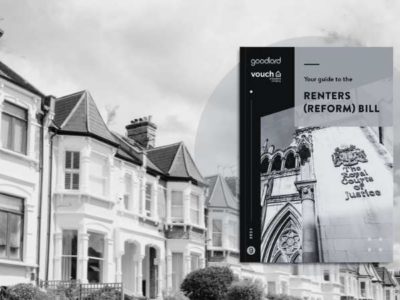From April 2023, new eligibility rules for business rates will apply to self-catering properties in England and Wales.
If you don’t meet these rules your property will become eligible for paying Council Tax.
The rules will be used in assessments from 1 April 2023.
The information about lettings during the 2022/23 operating year will be used to determine whether a property is eligible.
The changes
The new eligibility rules are different depending on whether your property is in England or Wales.
If your property is in England:
To continue to be eligible for business rates, from 1 April 2023 your property must be:
- available for letting commercially for short periods that total 140 days or more in the previous and current year.
- actually let commercially for 70 days or more in the previous 12 months.
If your property is in Wales:
To continue to be eligible for business rates, from 1 April 2023 your property must be:
- available to let commercially for short periods that total 252 days or more in the previous and current year.
- actually let commercially for 182 days or more in the previous 12 months.
What being let commercially means
When the Valuation Office Agency (VOA) talks about commercially let properties, it means properties that are let with the intention of making a profit.
This usually means the property is let at market rates and actively advertised.
For example, using holiday cottage websites, estate agents, and tourist web pages to advertise the property.
Any non-commercial lettings, for example lettings to family and friends for amounts below the market rates, would not count towards commercial lettings.
Who is affected
The new rules apply only to properties classified as self-catering holiday lets by the VOA within the broad use category of short stay accommodation.
They don’t apply to other types of accommodation in this category, such as hotels, hostels and guest houses.
There won’t be any exceptions in the application of the new eligibility rules.
They will apply equally to all self-catering properties across England and Wales.
New self-catering properties will be liable for Council Tax until the property meets the eligibility rules.
When properties will be assessed using the new rules
Valuation officers conduct a rolling programme to check that properties listed as self-catering properties in the non-domestic rating list meet the eligibility rules.
A valuation officer will ask for this information in the ‘Request for Information’ form, which will be sent to you at a later date.
It will consider whether you meet the new rules on your actual lettings for your property in 2022/23.
The rolling programme means the VOA will ask customers to give information at different times during the 2023/24 operating year.
But the VOA will be using a universal date, from which it will assess whether the new eligibility rules have been met, of 01 April 2023.
The new eligibility rules will be used in assessments made from 1 April 2023.
Properties may also be reassessed for other reasons.
For example, if there has been a change of circumstances or a change of use.
The VOA usually tell customers to inform them as soon as they know about a change in circumstances, such as a self-catering property no longer being used this way.
This is so they can add it to the Council Tax Valuation List, and your local council can contact you about your Council Tax bill.
But you don’t need to tell the VOA if you know you won’t meet the new eligibility roles on lettings until after 01 April 2023.
This is because the VOA can’t make changes to the Rating List on the new eligibility criteria until it comes into force.
The information used in assessments
The VOA issues forms called ‘Requests for Information’.
One of them has been designed specifically for self-catering units and holiday cottages.
The information provided on this form is used to check that the eligibility rules for self-catering properties are met.
It’s important that you return this form in time – you will be liable to a financial penalty otherwise.
It’s also important to complete it accurately, as it’s a legal document and there can be serious consequences for including false information, including prosecution.
Support available
There are a number of reliefs available to assist businesses, including the Small Business Rates Relief scheme (SBRR).
You can find out more about reliefs by contacting your local council.
Any questions about business rates or Council Tax payments should be made to your local council.





















Comments